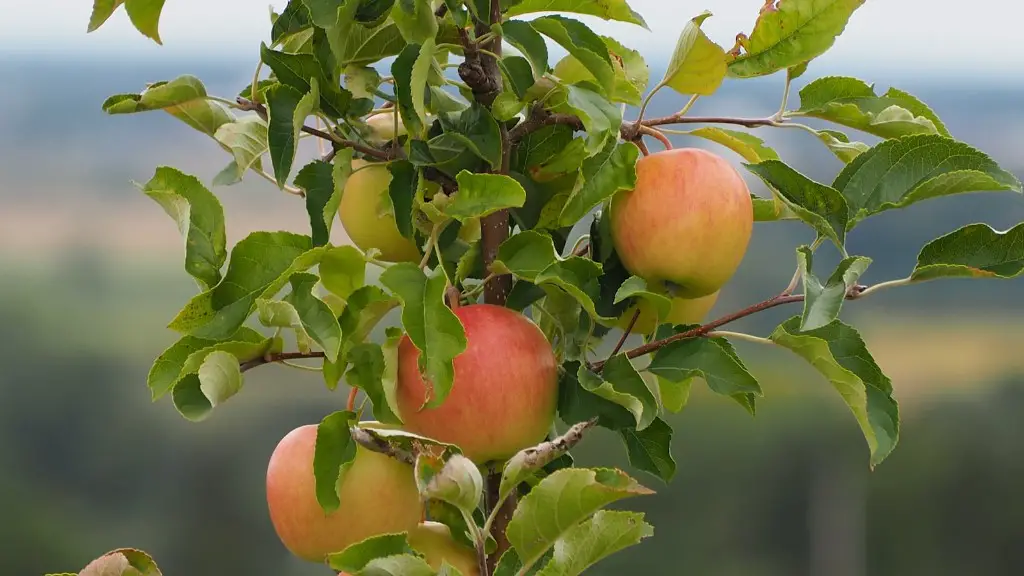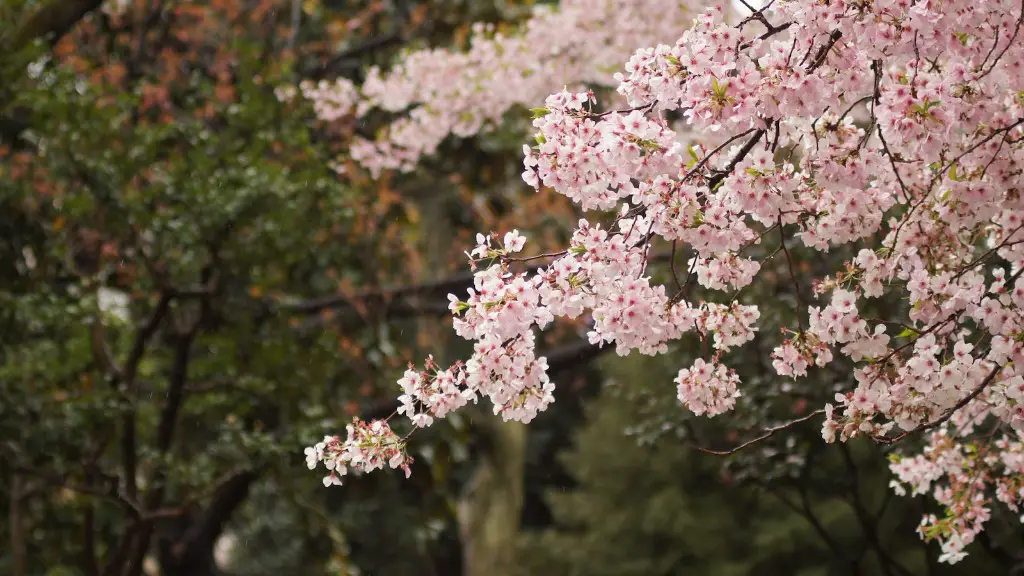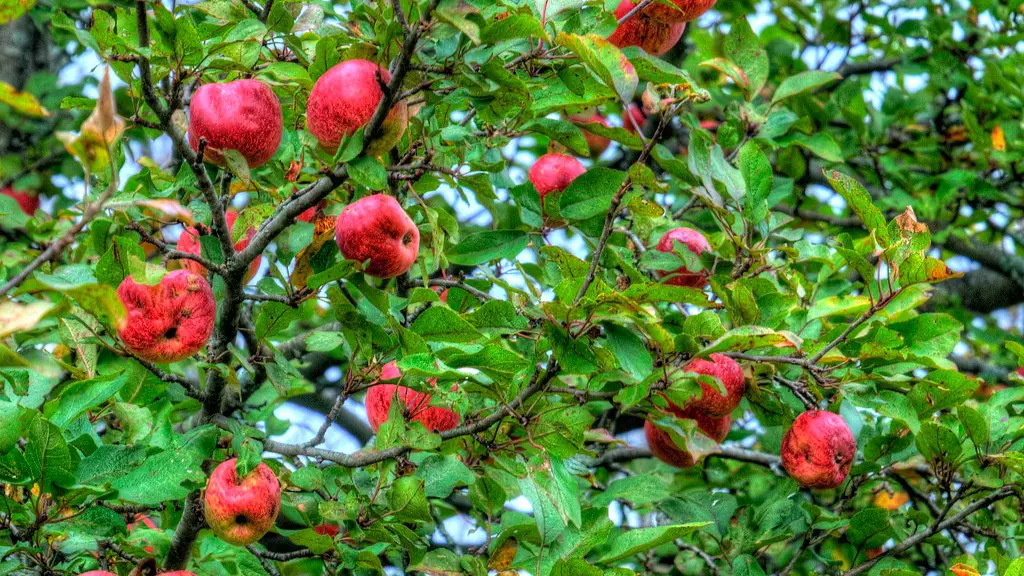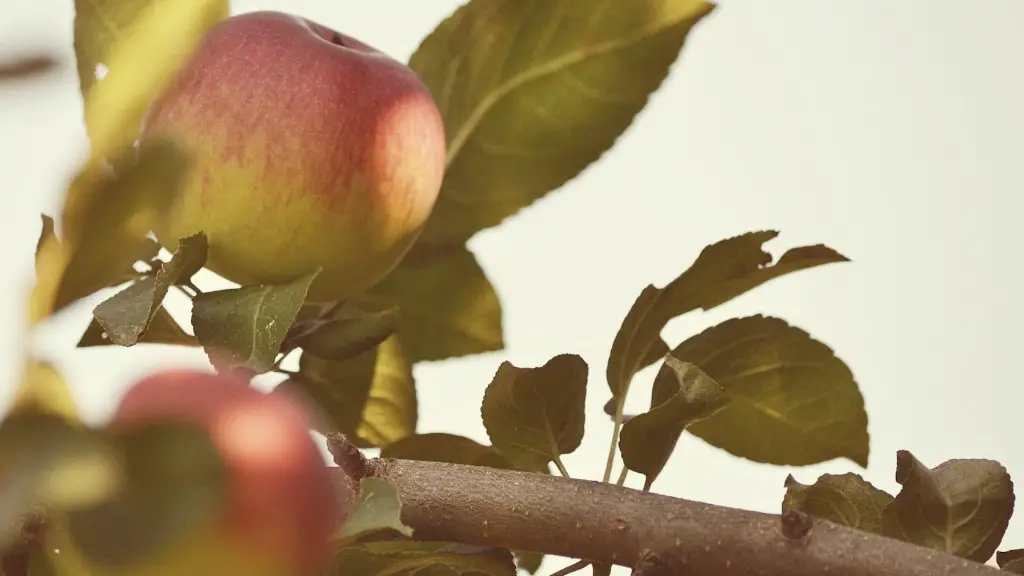When it comes to taking care of a meyer lemon tree, understanding when to water it properly is a critical skill. To ensure that your meyer lemon tree grows healthy, avoid dry spells and underwatering, yet also avoid overwatering. The amount of water and how often will depend on several factors, such as what type of soil and container it’s in, the climate, and how old your tree is. Here’s how to best determine when to give your tree the water it needs.
The first thing to consider when determining when to water your meyer lemon tree is the growing conditions. If the tree is in a container, you’ll need to water more frequently than with a tree in the ground. This is because the roots in a container don’t have as much access to moisture in the soil and can dry up quicker. Additionally, consider the type of soil; sandy soils dry out quicker than clay based soils.
Your climate and season will also impact how often you need to water the meyer lemon tree. Trees that are grown in a drier, hot climate will need water more often than those grown in cooler climates with more rainfall. During the spring and summer months, the tree will usually need water twice a week, while in fall and winter, it may only need water once every two weeks, unless your tree is in a pot and/or the climate is hot, dry and sunny.
As a general rule, it’s best to check the soil about two to three inches down and determine if your meyer lemon tree needs to be watered. If the soil is dry, you need to water your tree. If it feels damp, wait another few days until it’s been at least one to two weeks since the last watering.
It’s also important to water just enough and not too much. Only water until the topsoil is moist, but don’t saturate it with too much water. Letting the soil dry out in between waterings is essential to ensuring your meyer lemon tree is healthy. You should never let the soil dry out too long, as this can be detrimental to the tree’s health.
Finally, remember that different age trees will have different watering needs. Young trees should usually be watered every three to five days and established trees can usually go up to two weeks without needing any water. Also, keep in mind that in the spring, when the tree is actively growing and producing fruit, you may need to water more often. To determine how often to water your meyer lemon tree, consider the climate, type of soil, the season, and how old the tree is.
Monitoring the Soil Moisture
More often than not, you’ll need to monitor the soil moisture in order to determine if your meyer lemon tree needs to be watered. Some trees will also require more attention than others, so you’ll need to keep a close eye on what type of soil it’s in, how your climate is, and how often it needs to be watered. There are different approaches to monitoring the soil moisture, such as physically testing the soil with your finger, using a moisture probe, or using a digital soil moisture meter. Remember to keep the measurement 2-3 inches below the surface.
For a digital soil moisture meter, it can quickly and easily tell you if your meyer lemon tree needs to be watered or not. All you need to do is insert the probe into the soil, and it will display a number on the meter. If the number is zero, that means your tree is getting enough moisture, whereas if the number is 1-9, you’ll need to water your tree. Keep in mind that the number may vary depending on the type of soil, so take note of the type you have.
Using a moisture probe is another great technique to determine if your meyer lemon tree needs to be watered. This tool is specially designed to measure soil moisture and can tell you if the soil is dry or wet. To use a moisture probe, simply press the probe into the soil until it’s a few inches below the surface. It should tell you the percentage of moisture in the soil, which can help you determine if the tree needs to be watered. If the number is below 15%, your tree will likely need water.
Finally, you can use your finger to determine the soil moisture in your meyer lemon tree. Simply press your finger into the soil, about 2-3 inches below the surface. If the soil feels dry and crumbly, it likely needs to be watered. If it’s damp, then you can give it a few more days until it’s gone two weeks since the last watering.
Watering the Tree
Once you’ve determined that your meyer lemon tree needs water, the next step is to water it the right way. If your tree is in the ground and is an established tree, consider using a hose with a gentle spray and slowly water the base of the tree until the soil is moist. You may also need to water further away from the tree, as the water penetrates further into the soil. For a container grown meyer lemon tree, be sure to saturate the soil until you see water coming out of the bottom, but don’t let it sit in water or the roots may be damaged.
It’s also a good idea to use a mulch, such as hay, pine needles or dry leaves, to help retain moisture in the soil. This will help keep it from drying out as quickly and can help regulate the temperature of the soil. Additionally, consider watering in the morning when the sun is not at its peak and the temperatures are cooler. This can help reduce evaporation and help retain moisture in the soil longer.
Most importantly, avoid over or underwatering your meyer lemon tree. Both can be harmful to the tree, as too much water can lead to root rot and too little water can cause wilting, stress, and death. With the right amount of water, your tree will grow healthy and strong.
Watering Tips
To ensure your meyer lemon tree gets the best care possible, there are a few tips to consider when watering. First, avoid using tap water to water the tree, as the chlorine in tap water can be detrimental to the overall health of the tree. Instead, use water from rain barrels, a pond, creek, or river. This water is much more natural and helpful for the growth of trees.
Second, consider using an organic fertilizer to help the tree grow and promote healthy soil. Simply sprinkle a spoonful of fertilizer on the soil and water it down. This will add beneficial microorganisms to the soil and help the tree grow stronger. Additionally, consider using a liquid fertilizer periodically, as the nutrients in the fertilizer can quickly be absorbed and utilized by the tree.
Finally, consider using a compost tea to water your meyer lemon tree. This can provide extra nutrients to the soil and help improve soil life. To make the compost tea, simply steep compost in water and mix it into a liquid. This can then be used to water the meyer lemon tree. The compost tea will help nourish the tree and improve its health overall.
Keeping Track of Watering
Finally, keeping track of how often you water your meyer lemon tree can help you take better care of it. By keeping track, you can be sure to water your tree the proper amount. Consider using a calendar and make a note of when you last watered the tree. Additionally, think about taking a photo of the tree’s soil every few weeks to help track the moisture level. This can help you easily remember where you left off and when it’s time to water the tree again.
It’s also a good idea to keep a watering journal. Jot down when the last watering occurred, what type of water was used, and how much water was used so that you can easily reference the information in the future. This can be great to look back on throughout the season and across multiple seasons to measure the health of your tree.
Finally, to alert you when the meyer lemon tree needs water, consider investing in a smart soil moisture monitor. This will track the moisture level of the soil and alert you if it drops below a certain level. As soon as you get the alert, you can be sure to water the tree as soon as possible.
Keeping Up with Pruning
Additionally, it’s important to keep up with pruning your meyer lemon tree. Pruning helps keep the tree healthy, while also improving light and air circulation which can help promote fruit formation. Always use clean, sharp pruning shears, and prune in the late winter or early spring while the tree is still dormant. This will help your tree branch out and keep it healthy and strong.
Start by removing any dead wood, such as diseased branches or any that are rubbing against one another. This will prevent the spread of disease and promote healthy growth. Additionally, when removing branches, be sure to cut them back to the main trunk of the tree or another limb. Don’t leave a stump, as this can lead to disease and harm the tree.
Also, remove any sprouts and suckers that may appear at the base of the tree, as these will take away energy and resources from the fruit. Finally, focus the pruning on the bottom branches of the tree and the center of the canopy, as this helps promote better air circulation, which is important for preventing disease and promoting fruit production.
General Care
In addition to proper watering and pruning, there are some general care tips to ensure your meyer lemon tree grows and stays healthy. For one, try to keep the tree out of direct sunlight, as the intense light can be too harsh and damage the leaves. You should also make sure not to let the soil dry out too much, as this can cause leaves to drop and stress the tree.
Additionally, consider using a bird netting to keep birds from eating the developing fruits. Also, check for pests and diseases on a regular basis. Signs to look for include yellowing leaves, brown spots on leaves, wilting, and any other discoloration, and insect damage. If any of these signs appear, quickly remove the affected area and address the issue.
Finally, consider applying a light fertilizer every month or two. Organic fertilizer that is low in nitrogen and higher in potassium and phosphorus can help improve soil fertility and the overall health of the tree. Always be sure to follow the instructions on the fertilizer and adjust the proportions depending on the age of your meyer lemon tree.



